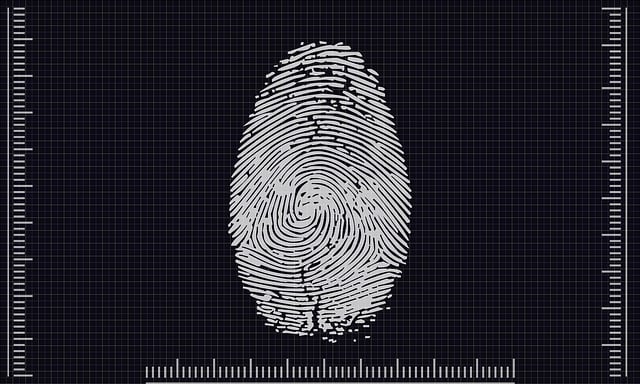When purchasing a used vehicle, it's imperative to go beyond the purchase price and perform a complete Motor Vehicle History Validation using the VIN to ensure you understand the car's past. This check is vital for revealing any history of accidents, title issues, or recurring mechanical problems that could affect the car's safety and value. Overlooking this step can lead to costly surprises and potential financial obligations. A thorough VIN lookup and vehicle records validation are essential to avoid hidden risks such as undisclosed damage, outstanding liens, or other legal complications. This due diligence protects your investment and personal well-being by helping you make an informed decision, ensuring the car's history does not pose future financial or safety hazards. Always remember to conduct a comprehensive vehicle history check before finalizing any used car purchase.
When contemplating the purchase of a vehicle, a thorough understanding of its history is paramount. This article delves into the significant role that Motor Vehicle History Validation plays in safeguarding your investment. As ABC News recently reported, an uptick in cars with hidden issues has underscored the importance of a meticulous VIN lookup and comprehensive vehicle records validation. This critical step can reveal potential red flags such as previous damage, outstanding liens, or safety recalls that might otherwise remain concealed. By neglecting this process, buyers risk not only financial loss but also safety concerns. We’ll explore the pivotal reasons why a complete vehicle history check is indispensable and how it can transform what appears to be a dream car into a potential liability.
- Understanding the Financial Significance of Car Purchases
- The Risks of Overlooking Motor Vehicle History Validation
- ABC News Alert: Rise in Cars with Incomplete Histories
- The Importance of VIN Lookup and Comprehensive Vehicle Records Check
- Uncovering Hidden Issues: Damage, Liens, and Safety Recalls
- Protect Your Investment with Due Diligence in Car Buying
Understanding the Financial Significance of Car Purchases

When contemplating the purchase of a vehicle, it’s imperative to recognize the financial gravity of such a decision. A car is not merely a mode of transportation but also a significant investment for most individuals. The financial commitment extends beyond the sticker price, encompassing expenses like insurance, maintenance, and depreciation over time. Given that a car purchase often ranks as the second-largest expenditure for many buyers after a home, it’s crucial to approach the decision with due diligence. This includes conducting a comprehensive Motor Vehicle History Validation using the vehicle identification number (VIN). This step is indispensable in ascertaining the car’s past, which can include information on any accidents, title issues, or recurring mechanical problems that could affect its safety and longevity. Overlooking this critical aspect can lead to unforeseen financial burdens and potential safety risks down the line. Therefore, buyers must invest the time and resources necessary to ensure they are making an informed decision, safeguarding their finances and well-being by fully understanding the vehicle’s history before finalizing the purchase.
The Risks of Overlooking Motor Vehicle History Validation

Overlooking Motor Vehicle History Validation can expose car buyers to a myriad of risks. A vehicle’s past can harbor significant issues that may not be immediately apparent during a physical inspection. Previous accidents or flood damage can compromise the integrity and safety of the vehicle, potentially leading to costly repairs down the line. Moreover, a car with outstanding liens can be repossessed, leaving the new owner without transportation and out of pocket. Similarly, ignoring hidden mechanical problems or undisclosed salvage titles can result in unexpected expenses and hinder the ability to sell the vehicle at its true market value.
The absence of thorough VIN lookup and Vehicle Records Validation can also lead to unforeseen complications with insurance coverage. Insurance companies have access to a car’s full history and may deny coverage or charge higher premiums for vehicles with a record of issues. This not only affects the buyer’s financial security but also their peace of mind, as they are at greater risk on the road with an unpredictable vehicle. Therefore, it is imperative for any prospective car owner to conduct a comprehensive history check before finalizing a purchase. It is not just a step in due diligence; it is a safeguard against potential financial and safety pitfalls associated with a vehicle’s concealed past.
ABC News Alert: Rise in Cars with Incomplete Histories

A recent alert from ABC News has shed light on a concerning trend: an uptick in vehicles being sold with incomplete histories. This revelation underscores the importance for car buyers to conduct a comprehensive VIN lookup and vehicle records validation before finalizing a purchase. The implications of overlooking this step can be significant, as undisclosed issues such as previous damage, outstanding liens, or pending safety recalls can compromise the integrity and value of the vehicle. These hidden factors might not only affect the car’s performance but also leave buyers potentially liable for unresolved financial obligations tied to the vehicle. The report emphasizes that potential buyers must take proactive measures to scrutinize a car’s past. By leveraging available tools and conducting due diligence, consumers can safeguard their investments and avoid the pitfalls associated with vehicles that harbor undisclosed history. It is a critical reminder in the car-buying process that knowledge is power, and that thorough research is indispensable when navigating the pre-owned vehicle market.
The Importance of VIN Lookup and Comprehensive Vehicle Records Check

When purchasing a used vehicle, conducting a Motor Vehicle History Validation through a VIN lookup and comprehensive vehicle records check is paramount. The Vehicle Identification Number, or VIN, is a unique code that encapsulates critical information about the car’s past, including its history of maintenance, accidents, and title status. A thorough VIN lookup allows potential buyers to verify the authenticity of the car’s odometer reading, uncover any reported accidents or structural damage, and identify if the vehicle has been subject to safety recalls. This due diligence is not merely a precaution; it is a safeguard against potential financial pitfalls and mechanical headaches down the line.
A comprehensive vehicle records check complements the VIN lookup by providing an overview of the car’s legal history. It reveals any existing liens or loans attached to the car, which could complicate ownership transfer. Additionally, it ensures that the vehicle has not been reported stolen and has a clear title, which is essential for legal registration and future resale value. By combining these checks, buyers can approach the used car market with confidence, knowing they have uncovered as much as possible about the car’s history, thereby mitigating the risks associated with hidden issues that could arise post-purchase. Skipping this crucial step could lead to unexpected expenses and complications, making it a vital component of the car buying process.
Uncovering Hidden Issues: Damage, Liens, and Safety Recalls

When contemplating the purchase of a used vehicle, it is imperative to conduct a comprehensive Motor Vehicle History Validation. This critical step reveals the car’s complete history, including any hidden damage, outstanding liens, or unaddressed safety recalls. Such information is pivotal in assessing the true value and condition of the vehicle. Unseen structural or cosmetic damage could compromise safety and lead to costly repairs post-purchase. Similarly, undisclosed liens can create legal entanglements where the buyer may be held responsible for settling the existing debt tied to the previous owner. Safety recalls, on the other hand, indicate past issues that manufacturers have identified as potential safety hazards. Addressing these beforehand ensures that buyers are not saddled with unexpected expenses or risks associated with a vehicle’s past. A thorough VIN lookup and vehicle records validation are indispensable tools in this process, offering peace of mind and protecting the buyer’s investment. Neglecting to perform these checks can lead to regrettable financial decisions and potential safety hazards that could have been easily mitigated with due diligence.
Protect Your Investment with Due Diligence in Car Buying

When purchasing a vehicle, conducting due diligence is paramount to protect your investment. A car’s history can significantly impact its value and safety, yet many buyers overlook the importance of a comprehensive Motor Vehicle History Validation. This critical step involves using a VIN (Vehicle Identification Number) lookup to uncover past accidents, title issues, or any other relevant information that could affect your car’s reliability and performance. Skipping this process can lead to costly surprises, such as discovering the car has been in a major accident or has outstanding financial liens against it only after the purchase. By investing time in a thorough VIN lookup and vehicle records validation, buyers can make informed decisions, ensuring they do not end up with a vehicle that could become a financial burden or safety risk. It’s not just about the sticker price; it’s about understanding the full story of the car you plan to own. This due diligence is your safeguard against hidden issues that could compromise both your finances and safety on the road.
When purchasing a car, the financial commitment is significant, often second only to buying a home. The recent ABC News report highlighting an increase in vehicles with incomplete histories underscores the necessity of conducting a detailed Motor Vehicle History Validation. This due diligence, facilitated by a thorough VIN lookup and vehicle records validation, is indispensable in safeguarding potential buyers from the pitfalls of undisclosed issues like previous damage, outstanding liens, or pending safety recalls. As the article has demonstrated across its sections, understanding the financial implications of car purchases, recognizing the risks associated with omitting this vital step, and employing the tools provided by ABC News can ensure that your automotive investment remains sound. In conclusion, a conscientious approach to car buying—one that includes a comprehensive VIN check—is essential for protecting both your wallet and your peace of mind.



